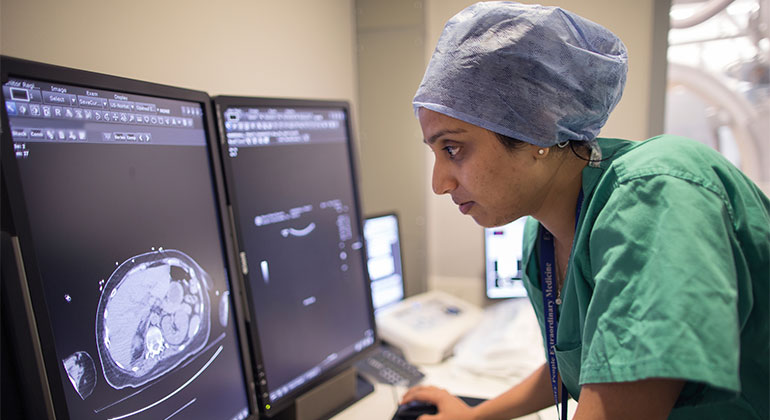
Interventional Radiology
Interventional radiology (IR) enables doctors to diagnose and treat numerous conditions and some cancers very precisely without open surgery. Our interventional radiologists use minimally invasive techniques that result in less pain, shorter hospital stays, and quicker recovery. Often, we can perform diagnosis and treatment with a micro incision that requires no stitches, and is covered with an adhesive bandage.
How It Works
With imaging guidance, our interventional radiologists thread a thin tube, called a catheter, into your body, usually through a blood vessel in the wrist or groin. Then we deliver treatment right through that catheter. IR is usually an outpatient procedure, performed while you are conscious but sedated. You can often go home the same day and go back to your regular activities a few days later.
Conditions We Treat
At Mount Sinai Doctors in Queens, we use interventional radiology to treat a variety of conditions, including:
- Damaged or blocked arteries and veins
- Many types of cancer
- Enlarged prostate, also known benign prostatic hyperplasia
- Uterine fibroids
- Deep vein thrombosis
- Varicose veins
- Peripheral arterial disease
- End-stage renal disease/hemodialysis
- Vertebral compression fractures
Make an appointment with a Mount Sinai interventional radiologist in Queens